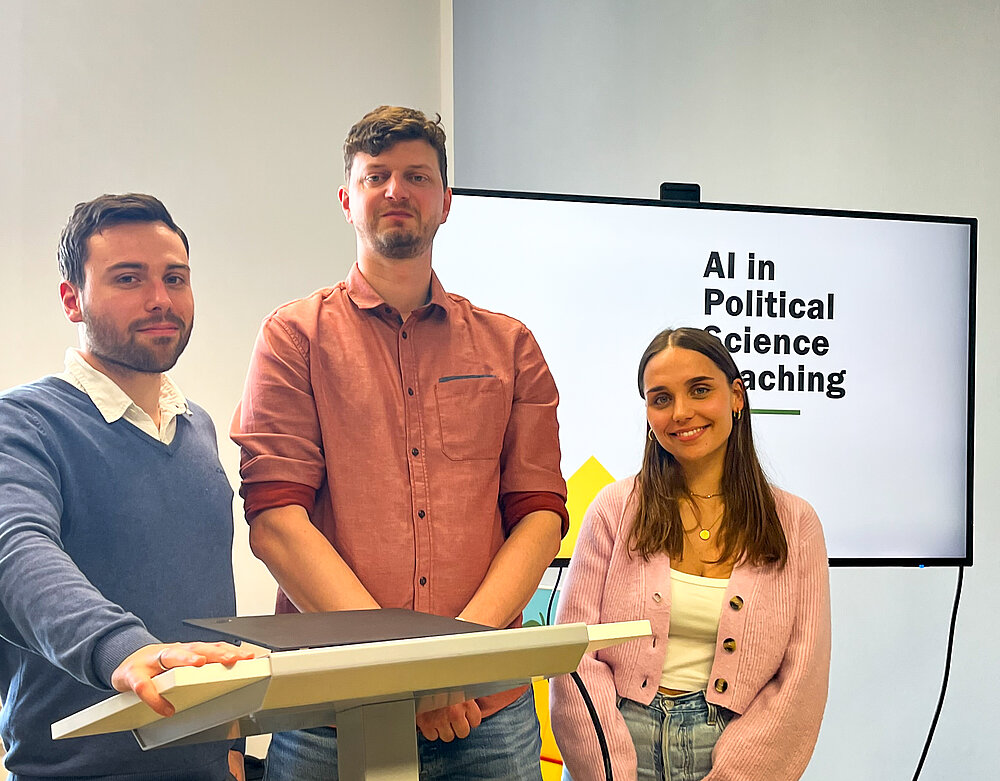Artificial Intelligence in Political Science Teaching

Milan Banse and Hans Stanka represent the IPS in the AI project at the University of Würzburg. They are investigating the opportunities and risks of AI in political science teaching.
Over the past year, artificial intelligence (AI) has become a recurring topic in media discussions. As AI companies boast about the capabilities of their ever-evolving models, fears for their jobs are spreading among professionals in many fields. At universities, especially in the social sciences, AI is widely perceived as both a risk and an opportunity.
AI at Bavarian universities
Recognizing the importance of integrating AI into educational practices, the Bavarian state government has initiated a new program to support the use of AI at Bavarian universities, which started on the 1st of November 2023. Around €440,000 will be available until the end of 2024. The aim is to train so-called AI tutors, who will in turn support teachers in the use of AI. The programmes ProfiLehre and WueDive accompany and support the AI projects at the JMU within the framework of the Centre for Scientific Education and Teaching (ZBL). The aim of the funding is not only to integrate AI into teaching but also to evaluate its effectiveness as an educational aid. Milan Banse and Hans Stanka from the Chair of Comparative Politics and Systems Studies successfully applied for this project. Their AI tutor Nora Osmanaj is funded by the WueDive bonus programme and works in collaboration with the University Library.
AI in Political Science Teaching
In the context of political science teaching, there are many areas where the technology can be used: AI works well for symbolic images but not for detailed explanatory diagrams. Exam questions can be effectively generated using AI, although they should always be reviewed by instructors. The same goes for quizzes. However, defining and formulating learning objectives becomes more challenging - AI seems to underestimate students' intelligence. As for correcting essays and papers, AI is not yet suitable. The fear that AI might secretly author academic papers in political sciences is misplaced. At present, AI lacks the ability to independently produce credible academic work in this field. This technology, while powerful, still requires significant human input to guide and refine its output. The process of developing a comprehensive academic paper involves complex reasoning, critical analysis and a deep understanding of nuanced arguments – skills that AI has not yet mastered.
AI gives us the opportunity to play with technology in an academic setting – but it certainly requires a degree of professional caution about the limits of the technology's capabilities and, not surprisingly, protection of data privacy.



